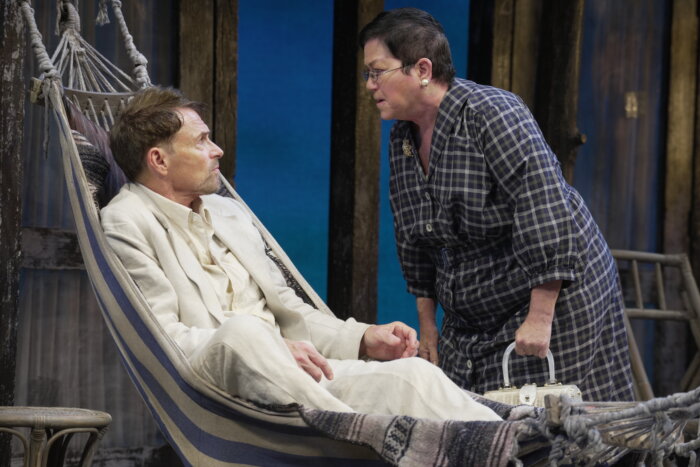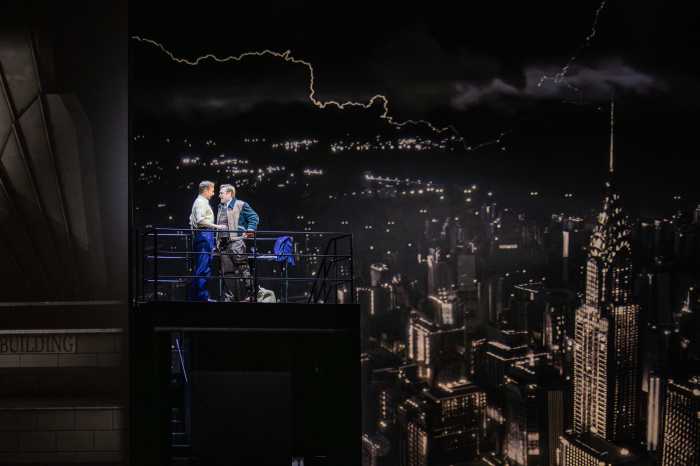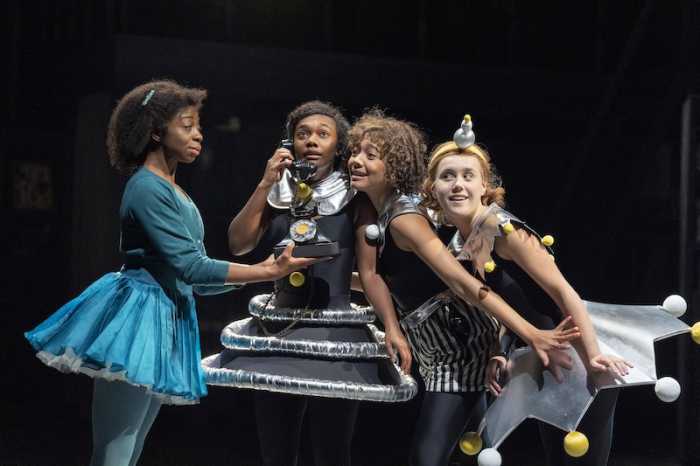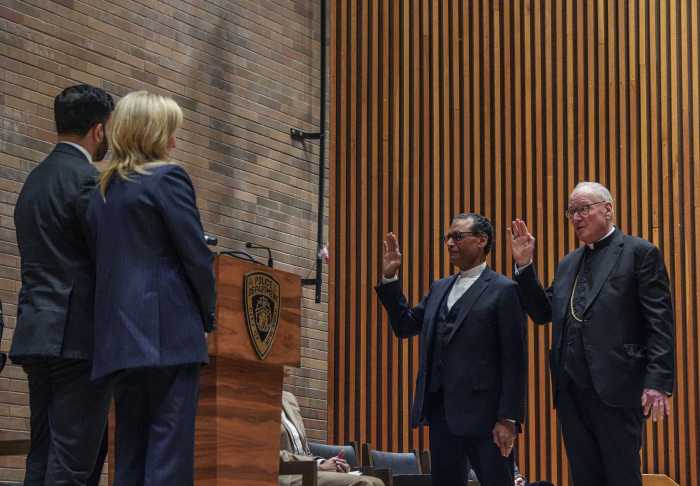In the mid-20th century, Tennessee Williams emerged as one of America’s most lauded American playwrights. Countless productions of “The Glass Menagerie,” “A Streetcar Named Desire,” and “Cat on a Hot Tin Roof” have been staged over the decades, and remain perennial favorites among community theaters and Broadway even today.
“The Night of the Iguana,” however, is not revived nearly as often as the crowd-pleasers. The problematic play, set in the remote, ramshackle Hotel Costa Verde on the coast of Mexico in 1940, is a character study set at a low boil without the sharp plot twists theatergoers expect from Williams’ dramas. The underlying spiritual themes of alienation, repression, and redemption do not always lend themselves to theatricality.
That hasn’t stopped La Femme Theatre Productions, however, from giving it a go. And what a commendable effort it is, with a fine cast and creative team. Under the direction of Emily Mann, the tormented protagonist, Rev. Shannon, is embodied with moody aplomb by Tim Daly, known for his stints on “Wings” and “The Sopranos.” The irreverent reverend, long ago booted out of his church, is now a guide in a sketchy tour company. He’s on the cusp of another nervous breakdown, and has come to seek solace at the hotel, against the protests of his busload of women tourists, who largely remain offstage but whose threat looms large over the proceedings.
The hotel’s lusty proprietor Maxine, who tries (and fails) to seduce Shannon, is gamely played by Daphne Rubin-Vega, of “Rent” fame. She appears to be enjoying a houseboy-with-benefits arrangement with a duo of swarthy young staffers.
Two unexpected guests, the down-at-the-heels spinster sketch artist Hannah and her ailing grandfather, are portrayed by Jean Lichty and Austin Pendleton, respectively. At 83, the veteran character actor has hundreds of theater and film credits to his name.
Lea Delaria (“Orange is the New Black”) lends an acrid exuberance to the role of Judith, the most vocal of the unhappy tourists itching to decamp to a cleaner, more conventional hotel in town. The longtime out-and-proud performer leans into the lesbian possibilities of the role.

Not that the cast is the sole reason to see this “Iguana.” Beowulf Boritt’s set of the rustic hotel and ample veranda overlooking the rainforest and beach, dominated by an expansive sky, is patently breathtaking. Animated by Jeff Croiter’s exquisite lighting design, the sky reflects the ever-changing mood and symbolizes the vastness of possibility.
Meanwhile, the titular iguana has been captured by the houseboys and tied under the hotel, and its frenzied cries can be heard by the guests above — an obvious metaphor for Shannon, constrained and at the end of his rope. The drama’s climax finds him grabbing a machete and hacking the rope to free the poor creature. Is the wayward tour guide freeing himself as well?
Remarkably, the ideas put forth still resonate today: The desire to escape from the pain of workaday life, find true connection, and regain balance in a rapidly changing world. My biggest quibble is that Mann has retained the onerous 3-hour running time, including an intermission. With some judicious cuts, the meandering work would pack a more forceful punch.
Like many of Williams’ works, “Iguana” is drawn from real-life events. In 1940, he stayed at a hotel called the Costa Verde outside of Acapulco. The story was written soon after his breakup with Kip Kiernan, which left him as unhinged as Shannon, and he needed a retreat to restore his sanity. Kip, by the way, renounced his same-sex leanings and married a woman.
The drama is based on a short story published in 1948 that featured a rootless, sexually inhibited female traveler and two strapping, unapologetic gay male travelers. It was turned down by Harper’s Bazaar for being indecent. According to scholars, Williams rejiggered the characters for the stage version “in order to conform to postwar America’s homophobic social politics and constraints.” Consequently, one of the gay male characters was replaced by Hannah, and the other male became a lothario.
Williams reformed the story into a one-act play in 1959, then expanded it into a three-act that debuted on Broadway in 1961, starring Bette Davis as Maxine. The play spawned a popular 1964 film, directed by John Huston and starring Richard Burton.
Throughout his career, Williams was forced to tone down or outright excise homosexual content, subverting his desire to portray his truth. If an intrepid producer created a similarly nuanced, provocative drama based on the original short story with a gay male couple, running at, say, 90 minutes, I would be first in line to see it.
“The Night of the Iguana” | Pershing Square Signature Center | La Femme Theatre Productions | 480 W. 42nd St. | $81-$161 | Through Feb 25, 2024 | 3 hours with 1 intermission





































